UNBC is committed to advancing the United Nations Sustainable Development Goals (SDG) through a wide range of initiatives aimed at fostering sustainability, inclusivity, and global responsibility. From integrating sustainable practices into campus operations to promoting education and research that align with the SDG, UNBC strives to contribute positively to both local and global communities. To learn more about how the university is working toward these goals, read on to explore the various programs, projects, and actions taking place across the institution.
- Research on the SDG
- SDG 1: No Poverty
- SDG 2: Zero Hunger
- SDG 3: Good Health and Well-Being
- SDG 4: Quality Education
- SDG 5: Gender Equality
- SDG 6: Clean Water and Sanitation
- SDG 7: Affordable and Clean Energy
- SDG 8: Decent Work and Economic Growth
- SDG 9: Industry, Innovation and Infrastructure
- SDG 10: Reduced Inequalities
- SDG 11: Sustainable Cities and Communities
- SDG 12: Responsible Consumption and Production
- SDG 13: Climate Action
- SDG 14: Life Below Water
- SDG 15: Life on Land
- SDG 16: Peace, Justice, and Strong Institutions
- SDG 17: Partnerships for the Goals
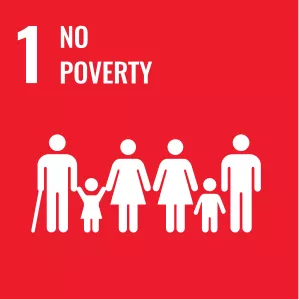
"End poverty in all its forms everywhere"
UNBC is committed to working to reduce poverty and poverty related social inequities at a local, regional, and global level. This commitment starts at home with efforts to ensure that students, staff, and faculty are supported but it extends to research throughout northern B.C. through the Community Development Institute and research around the world (i.e. Guatemala, Siberia). Our students are made aware of the issue and through student groups, such the Timberwolves Student Association and UNBC’s JDC West Term, they work at a local level to help alleviate poverty and support unhoused individuals.
NUGSS Emergency Financial Aid
NUGSS Emergency Aid fund is available to students in good standing with the Society who demonstrate considerable need in meeting the necessities of life. Emergency Aid can be awarded to a maximum of $250 per qualified student per academic year. The fund will be available to students that have exhausted all other avenues within the University.
https://www.nugss.ca/financial-services
CUPE 3799 Hardship Fund
During the 2019 UNBCFA job action, a group of CUPE 3799 members representing staff at UNBC came together to launch a special Hardship Fund to help our members most in need of emergency financial support.
They received generous contributions from the Faculty Association, CUPE BC and community members and they were able to provide funds quickly to more than two dozen members.
With the support of the CUPE 3799 executive and membership, the Hardship Fund is now a permanent fund within the Local. Any member who is facing emergency financial hardship is eligible to apply.
https://cupe3799.ca/resources/hardship-fund/
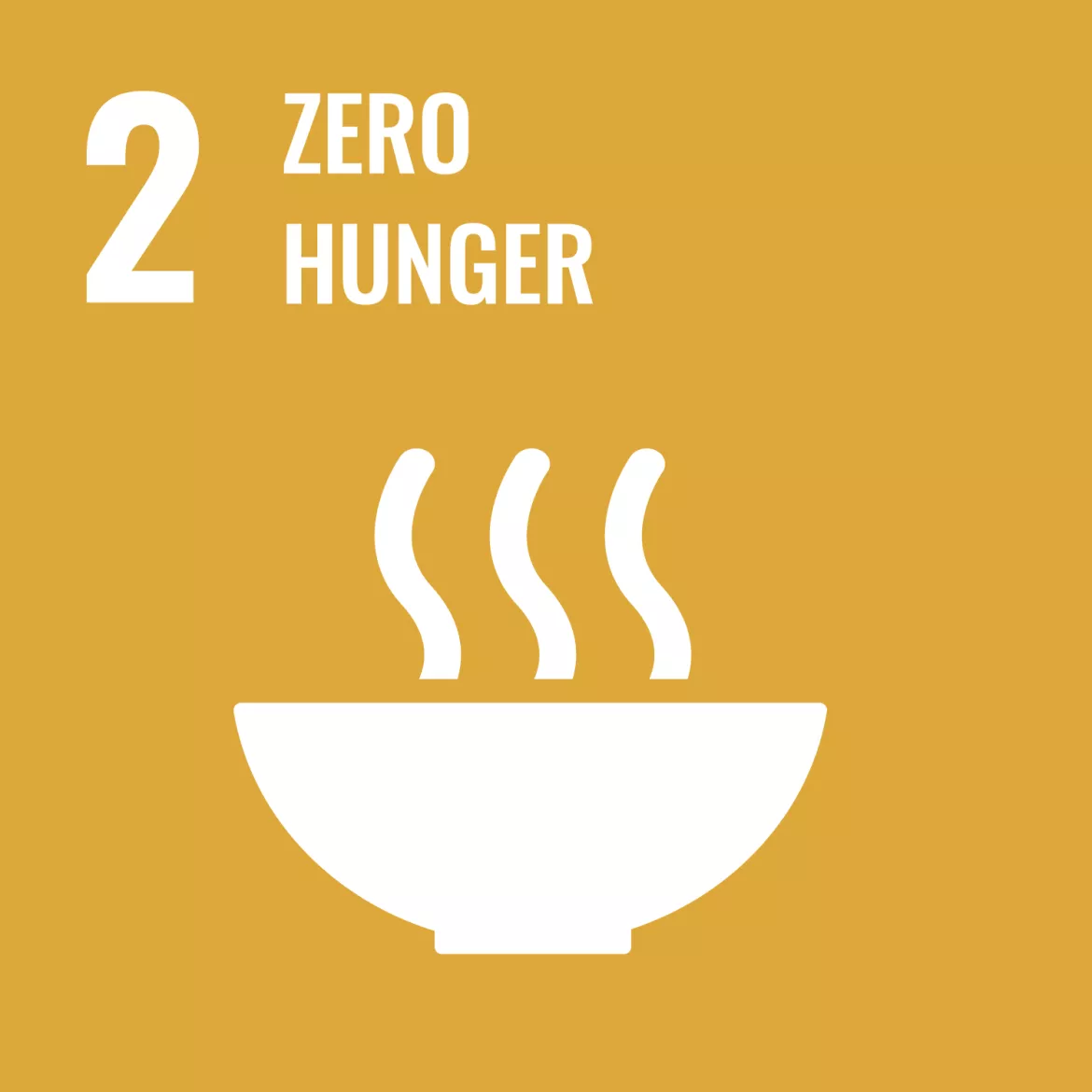
"Creating a world free of Hunger"
UNBC has taken a number of actions at the local and community level to ensure support for the goal of Zero Hunger. Whether its donating and maintaining a food bank for students or working towards policies which would see zero food waste on campus or feeding students through our First Nations Centre, the University is working at the local level to ensure that students, staff, and faculty have access to nutritious food. Our researchers are actively engaged in projects to ensure food security throughout northern B.C. and with collaborators around the world to address issues of food scarcity, along with engaging in research which addresses the need for bio-degradable and targeted pest control and strengthening agricultural soil.
NUGSS Food Bank
NUGSS provides a food bank to help improve food security for the entire UNBC community.
Their food bank is located at the NUGSS office (6-370) and is available during regular office hours.
https://www.nugss.ca/food-bank
UNBC Free Food page and UNBC Sustainability Instagram
UNBC sometimes hosts catered events where not all the food served gets eaten. Check out the UNBC Free Food Facebook page or the UNBC Sustainability Instagram @unbcsustainability to get notifications when free food is available on campus!
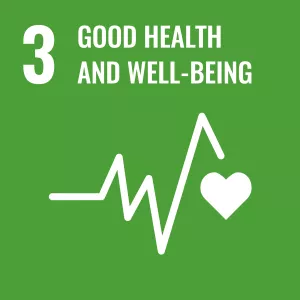
"Ensure healthy lives and promote well-being for all at all ages"
Healthy individuals – physically, mentally, and socially – are a key to any sustainable community and the University takes pride in the work it is doing to ensure that students, staff, and faculty are healthy. This includes free access to the Northern Sports Centre for staff and a nominal rate for students, to ensuring on-site counselling, to medical benefits plans, to providing engaging social events such as potluck lunches and dinners through the First Nations Centre. Our research expands across a number of areas such as indigenous health (the Northern Collaborative Centre for Indigenous Health – national, collaboration), healthy aging in place (the Centre for Technology Adoption for Aging in the North - local), the UNBC Health Research Institute (local) and the Northern Medical Program along with Physical and Occupational Therapy education (regional).
UNBC Medical Clinic
The UNBC Medical Clinic is located in room 5-161 of the Library Building on the Prince George campus. The clinic is staffed by a team of medical professionals who collaborate to offer a wide range of health services, aiming to coordinate and support students' healthcare needs while they study at UNBC. The UNBC Medical Clinic is available to registered UNBC students during their time in Prince George.
https://www.unbc.ca/medical-clinic
UNBC Counselling Services
The Counselling team is here to help UNBC students meet their goals as they journey through their academic life. Please visit the following website to find out how to connect with them.
https://www.unbc.ca/counselling
Employee Well-Being
UNBC Employee Wellbeing strives to facilitate safe and equitable participation in the workplace for UNBC employees, including those with disabilities and/or medical conditions. Their role is to support employees with workplace accommodations, medical leaves, return-to-work planning, and contribute to larger organizational wellness initiatives.
https://www.unbc.ca/employee-wellbeing
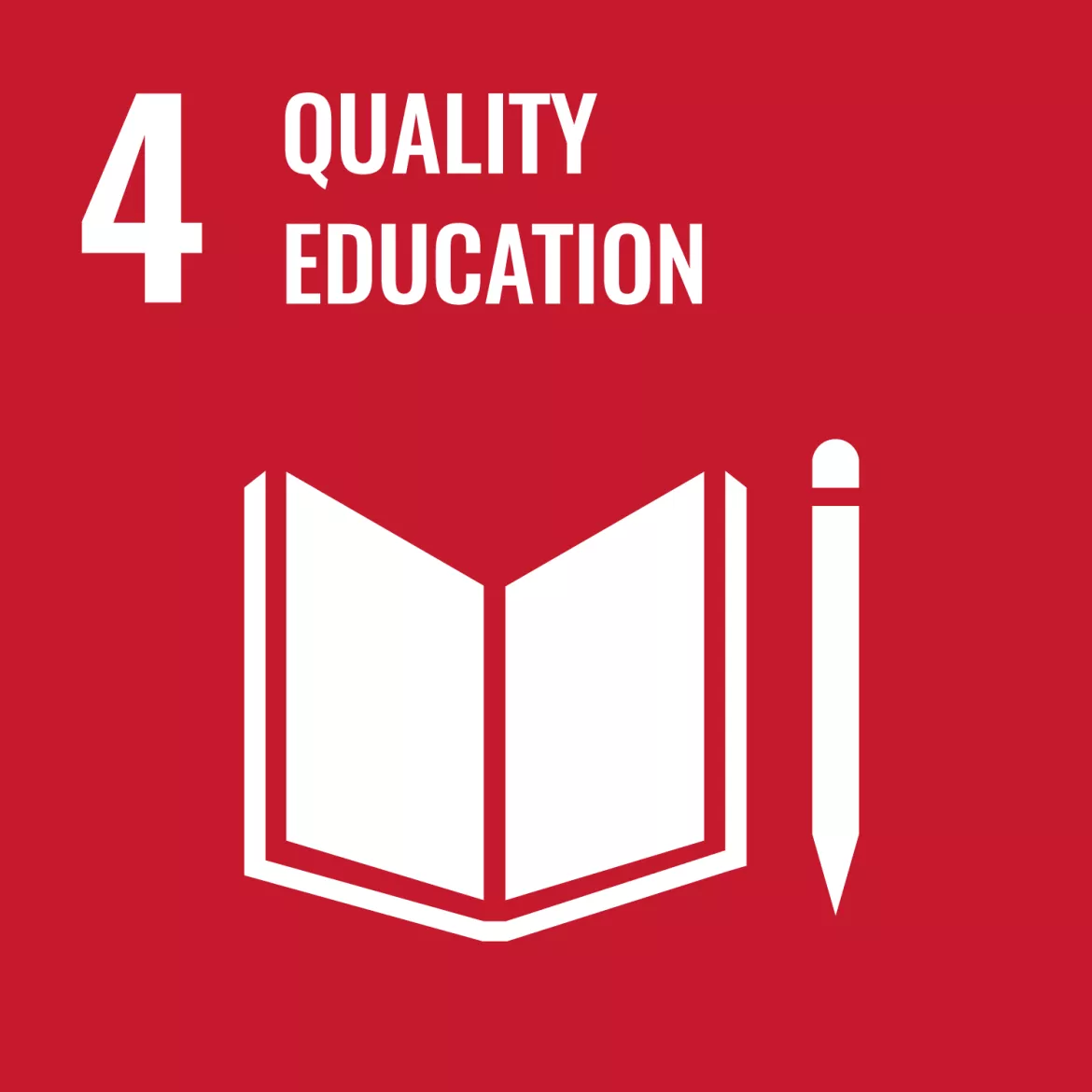
"Ensure inclusive and equitable quality education and promote lifelong learning opportunities."
At the core of UNBC’s existence is quality education. We take a “student first” approach in all of our decision making. We exist across four campuses covering half of the province of British Columbia (450,000 km2) in partnership with three regional colleges and with a federated college in the Nisga’a nation (Wilp Wilxo’oskwhl Nisga’a Institute). Our student population is ethnical diverse with 13% being self-declared indigenous students and 17% international students, while many domestic students are first generation Canadians. Our students are recognized nationally and internationally for their educational achievements and the University is consistently ranked highly in various surveys of Canadian institutions (i.e. MacLean’s annual ranking of universities).
Indigenous Resource Dati
The First Nations Centre is honoured to provide holistic support services to students, staff and faculty at UNBC. The First Nations Centre is a culturally safe and accessible space where leadership, academic growth, relationships, and personal supports are fostered.
They offer a wide variety of programs, services, and activities that help to improve educational outcomes for Indigenous students, create awareness and understanding of Indigenous perspectives and worldviews, and celebrate Indigenous culture. Their team is here to welcome everyone who visits or accesses the First Nations Centre.
Beyond supporting Indigenous students, one of the goals of the FNC is to help create dialogue and an understanding of Indigenous peoples and cultures to the wider UNBC community.
https://www.unbc.ca/indigenous-resource-dati/first-nations-centre
UNBC Active Minds Programs
Active Minds offers a full slate of science, engineering, and computer camps, event and workshops for kids ages 6 to 16.
https://www.unbc.ca/youth/active-minds
UNBC Continuing Studies
The Continuing Studies program at the University of Northern British Columbia serves the needs of adult learners of all ages.
We offer a wide range of programming through campuses in Prince George, Quesnel, Terrace, and Fort St. John, online, virtual and in-person. Whether you want to build your professional skills or explore topics for your own personal interest and growth, we have the courses to suit your educational needs and schedule.
https://www.unbc.ca/continuing-studies
UNBC Experiential Learning
At UNBC, students have the opportunity to engage in hands-on experiences that bring learning to life. They can travel to Guatemala to work with local Indigenous communities, build robots in class, or take on the role of a political leader in a simulation on the impacts of climate change. Students might even help construct a traditional Dakelh-style pit house or collaborate with the community to build a local greenhouse.
These are just a few of the many experiential learning opportunities available at UNBC. The university offers courses specifically designed for students to apply their knowledge and reflect on their learning through real-world experiences, both inside and outside the classroom.
Through experiential learning, students connect to the world, hone their skills in practical settings, and witness their education in action.
https://www.unbc.ca/experiential-learning
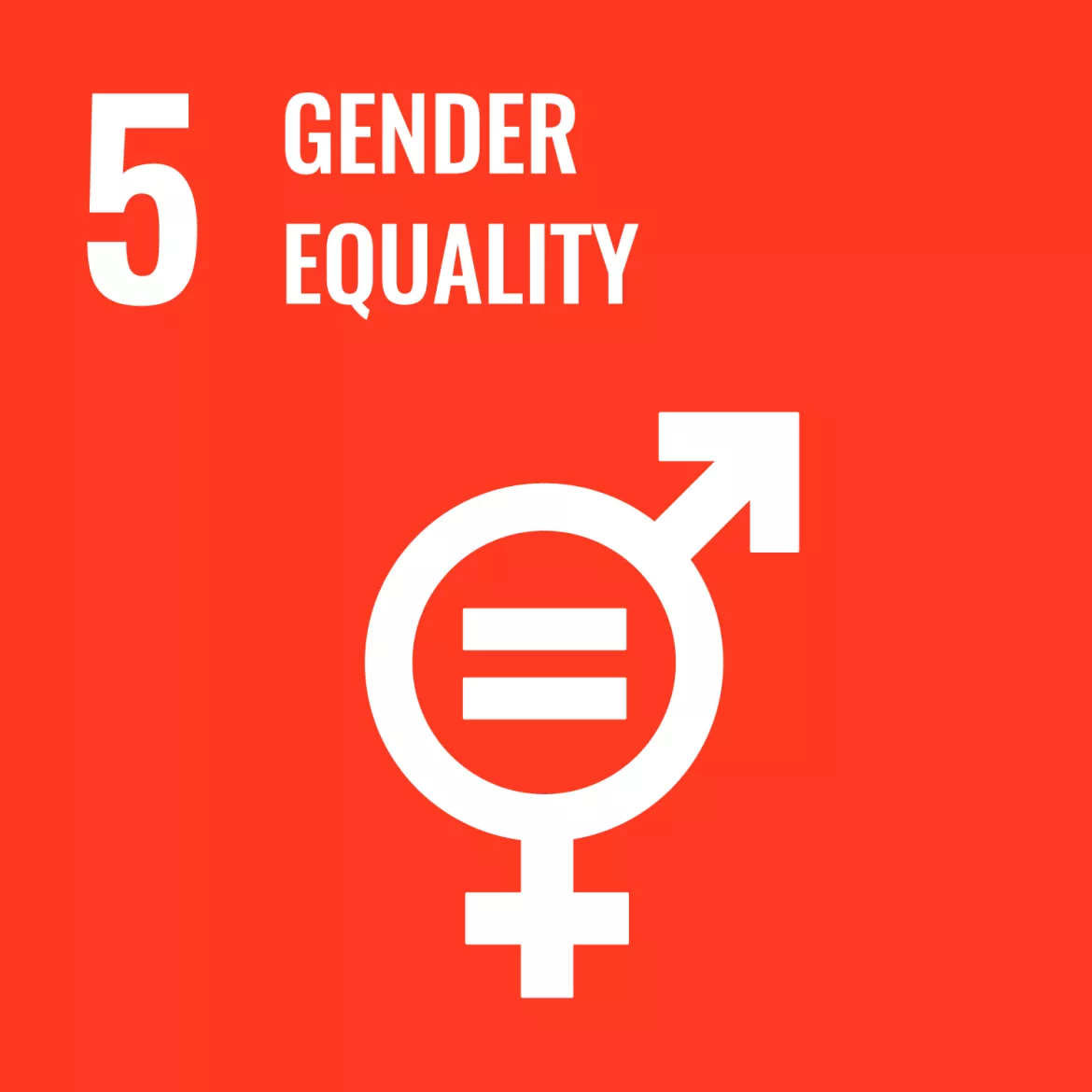
"Achieve gender equality and empower all women and girls"
Northern Women's Centre
The Northern Women’s Centre (NWC) is a non-profit organization dedicated to supporting, educating, and advocating for the diverse needs of women in Northern British Columbia. The centre is committed to providing a 24-hour safe space for women while advancing gender equality.
Located on the University of Northern British Columbia's Prince George campus, the NWC fosters an environment of openness, creating a comfort zone where women feel safe and supported. The encouragement and resources available at the centre help women build greater self-worth and self-esteem, empowering them to move forward with confidence.
https://www.northernwomenscentre.com/about
Free and Accessible Menstrual Products
A group of campus groups, including the Northern BC Graduate Society and the Prince George Public Interest Research Group (PGPIRG), developed a pilot project to install dispensers in high-traffic washrooms. The project was inspired by the United Way's Period Promise campaign.
https://www.unbc.ca/newsroom/unbc-stories/free-menstrual-products-coming-unbc-campus
Free and Accessible Birth Control Products
There are free birth control products available outside the Northern Women's Centre which is next to the UNBC Security Office.
All-Gender Restrooms on Campus
Students at UNBC are taking steps to make the campus more welcoming. New signs have been installed on the University’s single occupant washrooms, designating them as gender neutral.
A list of All-Gender Restrooms on Campus can be found here:
https://www.unbc.ca/equity-and-inclusion/resources
Consent Campaign
Consent is more than a yes—it’s an enthusiastic, informed choice. During the month of September, the #IGetConsent campaign aims to help the UNBC Community learn about what enthusiastic consent looks like and why it matters. To find more support visit: https://unbc.ca/sexual-violence/help
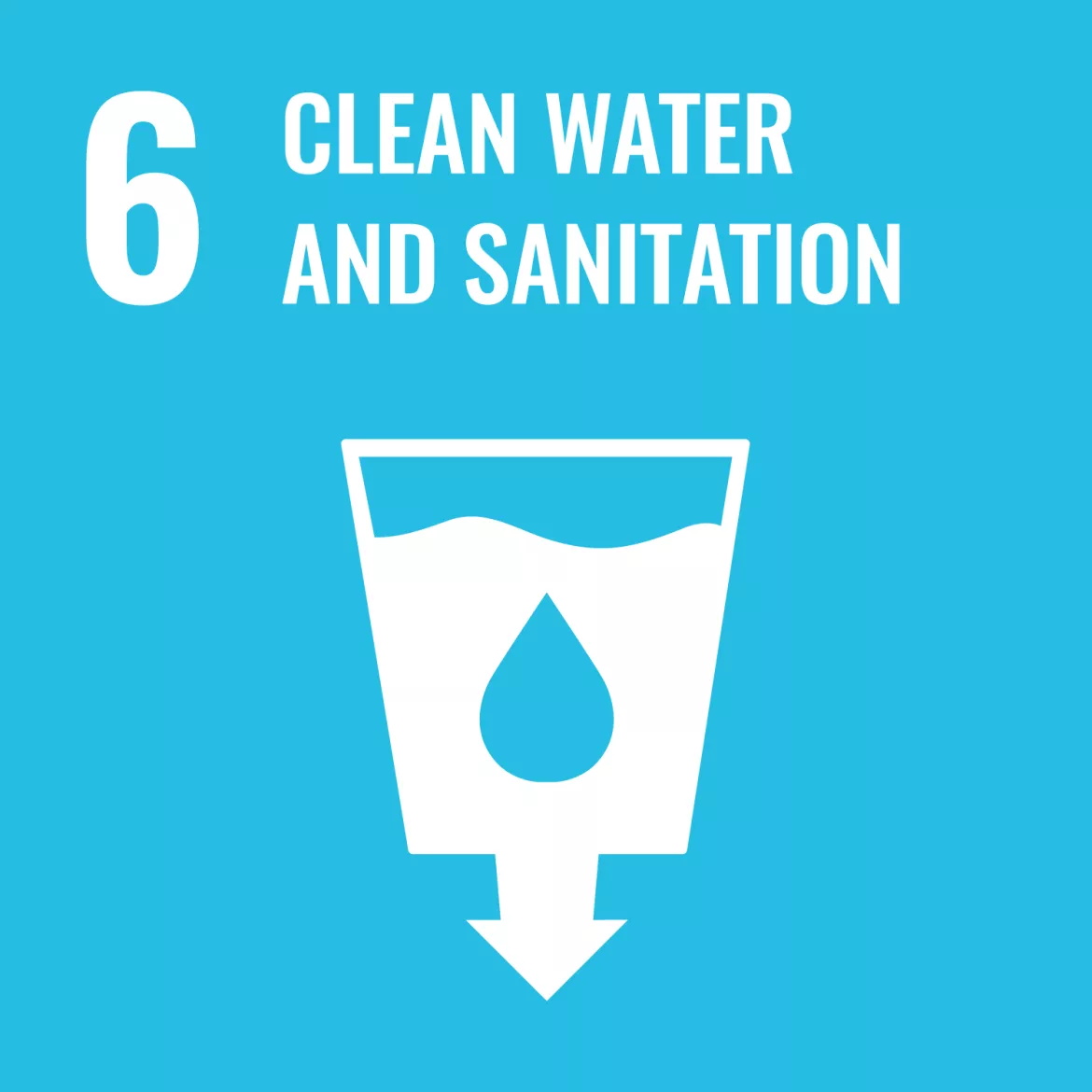
"Ensure access to water and sanitation for all"
Clean water and air are critical for the development and sustainability of any society. As the University is located on four regional campuses spread across a significant portion of the province, considerations around clean water and air tend towards localized solutions. UNBC has been a major contributor to ensuring access to clean water and air throughout its region with numerous research projects engaged in water management (the Integrated Watershed Research Group), clean water (the Water and Sanitation Holistic Technologies research group), and clean air (Natural Resources and Environmental Studies Institute). Research into water purification and treatment are ongoing, along with discussions with indigenous communities to ensure that research is translated into action.
Water refill stations
There are many water refill stations around campus, so bring your own reusable water bottle!
https://www.unbc.ca/sustainability/water-refill-stations
UNBC's Water and Sanitation Holistic Technologies (WASH-T) Research Group
The Water and Sanitation Holistic Technologies (WASH-T) Research Group at the University of Northern British Columbia is unearthing valuable insights into the advantages of decentralized, also known as on-site water and sanitation solutions. Decentralized solutions, or off-grid systems, manage water and waste locally, offering a compelling alternative to centralized approaches. They have organized a series of events featuring speakers on this topic.
https://www.unbc.ca/newsroom/unbc-stories/innovating-water-and-sanitation-sustainable-communities
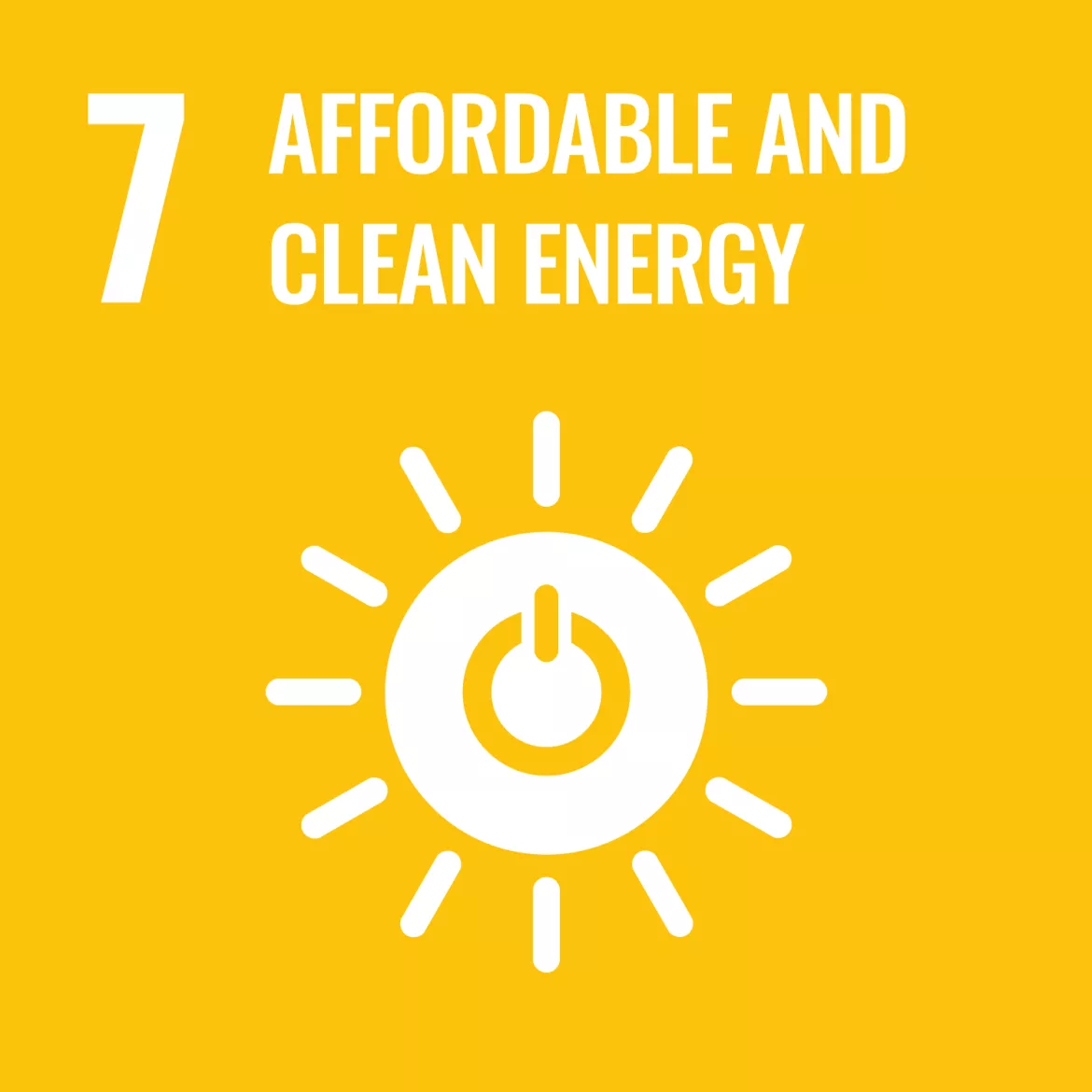
"Ensure access to affordable, reliable, sustainable and modern energy"
As Canada’s Green University, the main campus was designed with the intent to minimize energy consumption and impact on the environment – to be a sustainable campus. This included such features as green roofs, building connectivity, and natural lighting throughout most buildings. Wood construction was employed in many buildings to reduce energy consumption in construction. As technologies have improved, UNBC has upgraded its facilities, including the use of a bio-energy plant to provide heating during winter months and a retrofit of all light fixtures to minimize electrical consumption. UNBC engages in research intended to support the introduction of clean, renewable energy in its entire region and beyond.
New UNBC buildings have been (e.g. Wood Innovation Design Centre, Wood Innovation Research Laboratory) and will be (e.g. New Residences, Daycare facilities) designed to meet Passive House standards and the highest level of the LEED rating system.
Energy Management Program
With raised awareness of the environmental impacts of energy use, the University of Northern British Columbia has committed to minimizing its environmental impact by reducing energy consumption, and showcasing renewable and efficient energy systems that are of particular interest to northern and remote communities, while supporting its mandate of teaching and research.
In addition to minimizing the environmental impacts of operating UNBC facilities, decreasing energy use and switching to renewable energies stabilizes operating costs and reduces the impact of increasing energy rates. For example, over the past five years electricity prices have risen 40%, however due to the Energy Management initiatives UNBC decreased electricity use by 13% which resulted in just a 16% increase in electricity costs.
UNBC has completed dozens of energy efficiency projects over the past 11 years which have helped us reduce our electricity use by 40% and natural gas consumption by 24% from the 2010 baseline, resulting in utility cost savings of $3.2 million and $2.6 million respectively. UNBC has prepared a Strategic Energy Management Plan (SEMP) for each financial year since 2011-12 with energy reporting included for the previous financial year.
https://www.unbc.ca/sustainability/energy-management
Wood Pellet Project
In the spring of 2009, UNBC installed Canada’s first university-owned wood pellet heating system. With much higher energy efficiency than the previous fossil fuel-based heating system, this project reduces emissions by 140 tons of CO2/year. The facility also serves as a valuable demonstration site for public education, with more than 700 political leaders, industry officials, and community residents visiting during the first year alone.
Biomass Gasification Project
UNBC’s biomass gasification system began heating the Prince George campus in March 2011. The system supplies heat to the core campus buildings and offsets about 85% of previous fossil fuel consumption. This $15 million project was funded by the federal and provincial governments, and hog fuel is provided by Lakeland sawmill located in Prince George. In addition to being carbon-neutral, the cost of acquiring hog fuel is only about 35% of the cost of natural gas.
UNBC’s bioenergy plant won the Best Campus Case Study Award from The Association for the Advancement of Sustainability in Higher Education (AASHE) in 2011. The plant is also certified to the prestigious LEED Platinum standard and emits among the lowest emissions of any bioenergy plant in North America. As an additional sustainability benefit of the Bioenergy Plant, ash resulting from the process is collected and used as a fertilizer at a local farm.
Free cooling
Our facilities staff has identified several opportunities to bring in cool outdoor air rather than run air conditioners to keep campus electrical equipment cool. Working with the Energy Manager and local engineering consultants, we have been able to implement these initiatives to save both electricity and potable water for cooling. A recent example is the free cooling project that was completed in 2020 for the data centre in the Administration Building.
Sustainable communities demonstration project
In 2014, UNBC began work on the Sustainable Communities Demonstration Project (SCDP), which further expanded our bioenergy supply on campus. The SCDP involved installing a low-temperature district heating system that connected our student housing, daycare, Enhanced Forestry Lab, and take-offs for future buildings, with the existing biomass gasification plant. The SCDP is built with future expansion in mind; opportunities such as installing low-temperature heating options (e.g. geothermal), or a food producing greenhouse may be achievable with this new infrastructure.
The SCDP became operational in September 2016, when the first of UNBC’s student housing was switched over to bioenergy. In the summer of 2017, UNBC’s second housing building and the daycare were also switched over to bioenergy.
Lighting upgrades
UNBC has completed several lighting upgrade projects in partnership with BC Hydro since the Energy Management program began in 2010. Lighting upgrades are done by area, where significant savings are obtained from replacing older technology such as fluorescent tubes with LED lighting. In addition, motion sensors, scheduling, and network controls are integrated as part of these upgrades to optimize energy savings.
Continuous optimization
Working with BC Hydro and an external consultant, UNBC has seen significant energy reductions through the Continuous Optimization Program. The program involves investigating existing building systems to identify opportunities for optimization and energy savings. The first round of the program took place between 2013 and 2017, tackling nine buildings on campus. Eight of those nine buildings were selected for a second round of the program, which was completed in 2023.
Heat exchanger upgrades
UNBC is undertaking a multi-year series of heat exchanger upgrade projects. The main intent of the projects is to replace aging inefficient heat exchanger systems with newer more efficient systems. This entails replacing large inefficient plate-and-frame heat exchangers with smaller, more efficient brazed plate heat exchangers. Additionally, this often entails replacing large inefficient fixed speed pumps with fewer, smaller variable speed drive pumps. The redesigns can also entail decoupling systems so that they can be run independently, so for example, a pump can be switched off if its system is off where previously it might have been running all the time. The projects have also allowed for more efficient yet robust piping design, while also being maintenance friendly. All these tweaks, large and small, for each system that is upgraded, ultimately improve the efficiency of each system which will then result in less electricity and fuel demand. An additional important benefit is the lowering of the return water temperature (by allowing more heat transfer through temperature differential rather than higher flow rate) – it is anticipated that the lower return temperature will allow for the use of the primary district water loop for heat recovery.
Electrification
UNBC continues to investigate and implement electrification projects to help reduce fossil fuel consumption. A recent example that was completed was the installation of a hybrid heat pump system in the Maintenance Building in March 2024 to replace the previous aging and inefficient propane furnace. The heat pump will be used for cooling and heating, only backed up by propane in very cold ambient temperatures.
UNBC Solar panels
UNBC has 25 solar panels (16 of which were donated from the Highglen Montessori Elementary School and School District 57) on the roof of the Conference Centre (Building 6) which produces roughly 5000 kilowatts of electricity per year which is about $1100 worth of electricity. On a good day with maximum sunshine, it can power 145 laptops at one point in time. Most houses use roughly 10,000 kwh over the course of a year.
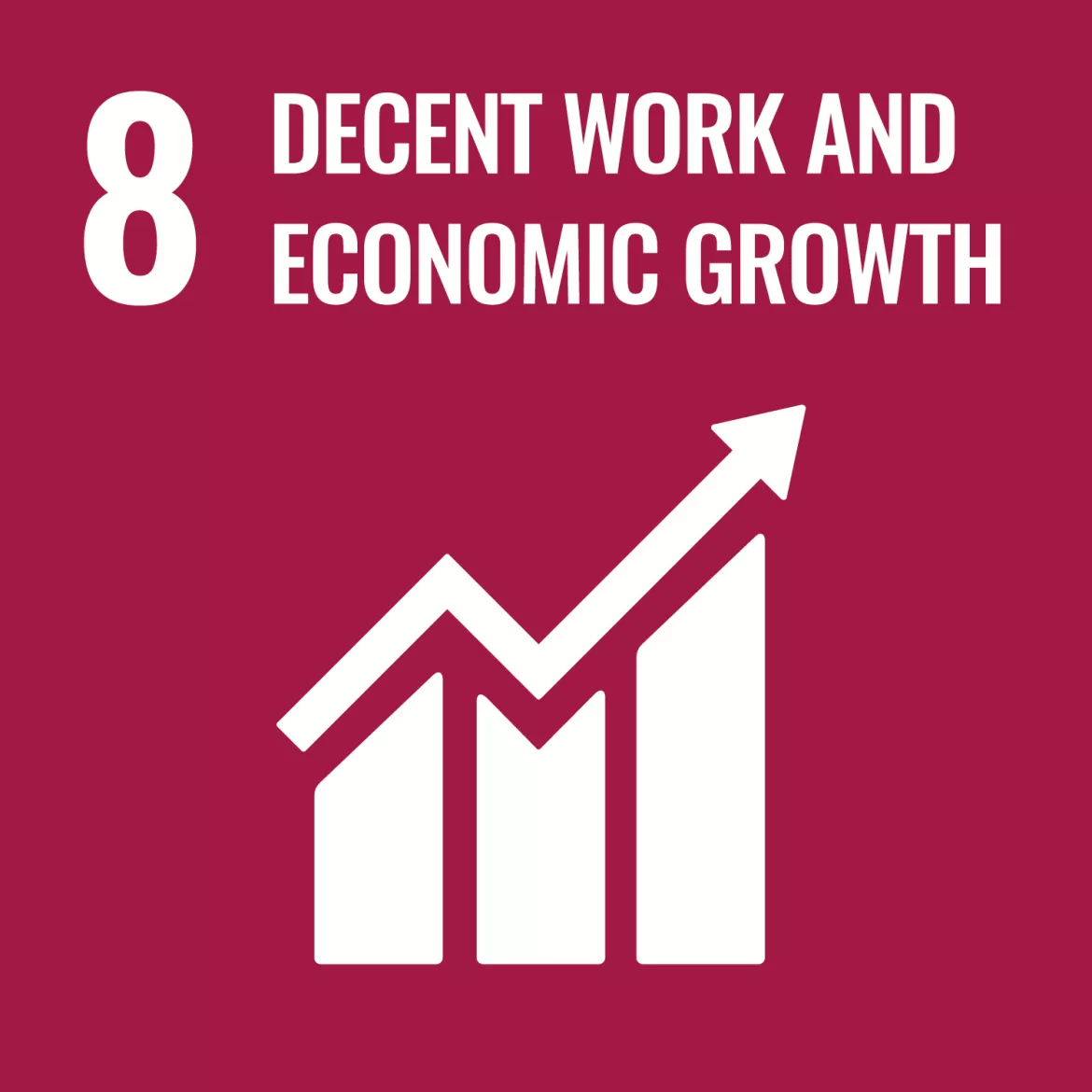
"Promote inclusive and sustainable economic growth, employment and decent work for all"
UNBC is an engine for economic growth within the region. Through various projects, conferences, and research projects, we are facilitating the growth, development, and diversification of the economy in our region and throughout the province. For example, the Community Development Institute has engaged in many initiatives moving communities forward, such as working with the City of Fort St. John on community transformation, including a social and economic development framework and guided implementation of transformation initiatives. The university also features a Master of Arts program in Development Economics. We are also working on ensuring decent working conditions in Central America through research on mining (Dr. Catherine Nolan). And students can take a variety of courses and degree options centred on economic development issues.
Off-Campus Workplace Location Program (OWL-P)
The University of Northern British Columbia recognizes the importance of offering employees greater flexibility in where and how they work, aligning with SDG 8: Decent Work and Economic Growth. While promoting a flexible work environment, the University also prioritizes work standards, operational efficiency, and the specific needs of each role. When determining which positions are suitable for off-campus work, UNBC strives to balance these factors, ensuring that employees have access to fair, productive, and sustainable work opportunities.
https://www.unbc.ca/human-resources/off-campus-workplace-location-program-owl-p
UNBC Career Centre
The UNBC Student Career Centre offers a range of services to students, alumni, and employers within the community, supporting sustainable economic growth and fostering innovation. The centre facilitates employer recruitment and information sessions for students, participates in annual career fairs hosted on campus, and posts career opportunities for UNBC alumni. Additionally, it provides part-time and full-time job listings for students and organizes Co-operative Education work term placements, helping to bridge the gap between education and the workforce.
https://www.unbc.ca/career-centre
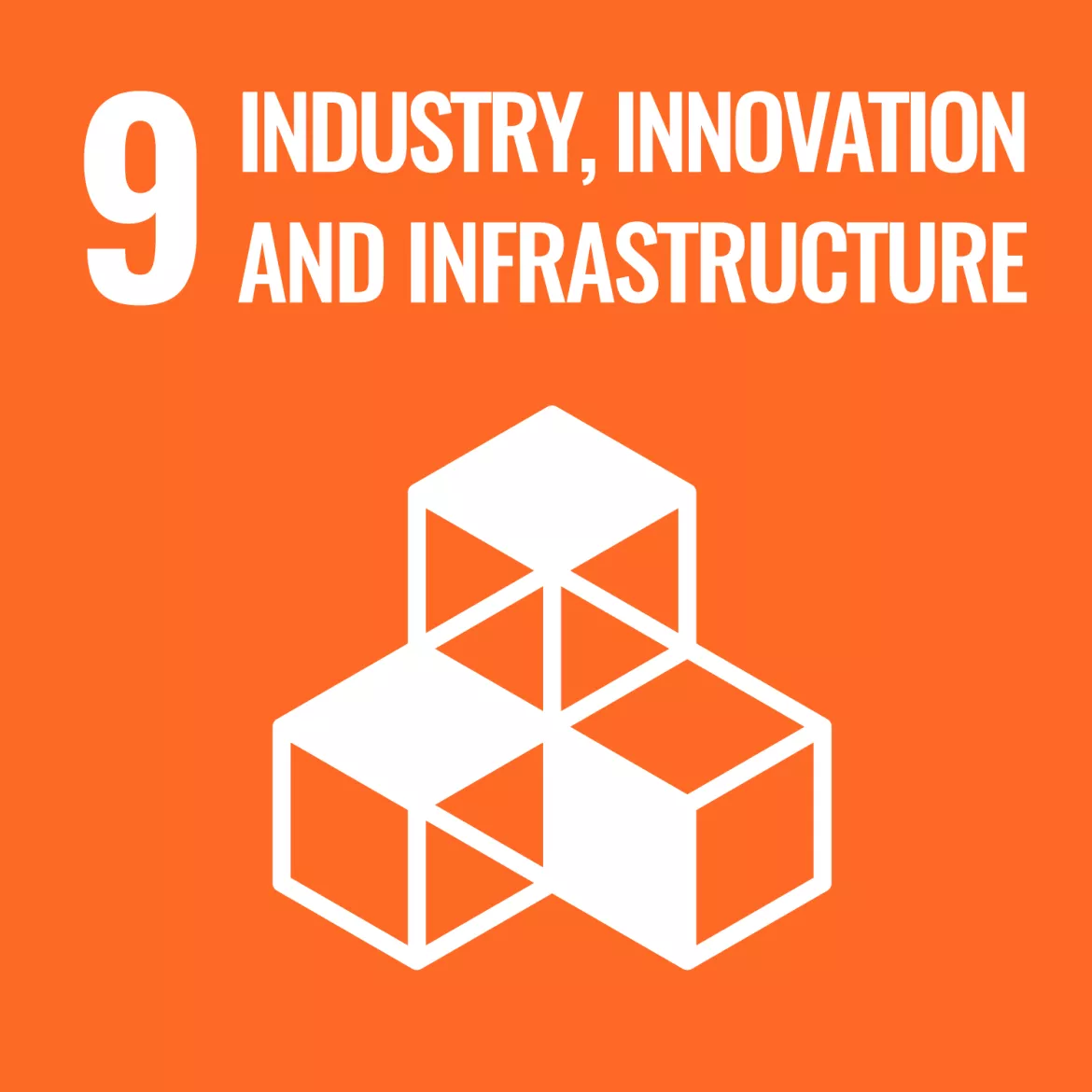
"Build resilient infrastructure, promote sustainable industrialization and foster innovation"
UNBC Campus Master Plan: Destination 2040
The UNBC Campus Master Plan is a framework for decision-making about development on campus, with a planning horizon to the year 2040. This plan helps shape the evolution of campus and create a physical manifestation of the aspirations of the campus community. While the vision and objectives apply to UNBC in its entirety, the design directives and frameworks apply specifically to the Prince George campus. The UNBC Campus Master Plan: Destination 2040, adopted by the UNBC Board of Governors in May 2019, articulates this vision for the future of UNBC and represents the hundreds of comments, ideas and challenges raised by the campus community throughout the planning process in 2018.
https://www.unbc.ca/about-unbc/campus-master-plan
Innovative Infrastructure Projects
Essential to the advancement of innovative research is the acquisition of workhorse and highly advanced infrastructure. UNBC gratefully acknowledges the contributions from the Canada Foundation for Innovation (CFI) and the British Columbia Knowledge Development Fund (BCKDF) that enable researchers to advance research priorities through building capacity and training the next generation of researchers. The CFI administers these projects through various programs, and contributes up to 40% of the cost of a project, with the BCKDF contributing another 40%. The remaining 20% is provided through voluntary discounts from UNBC’s valued vendor partners and donations from other sponsors.
To learn more about all of UNBC's innovative infrastructure projects please visit the webpage:
https://www.unbc.ca/office-research-and-innovation/innovative-infrastructure-projects
Passive House Buildings
In July 2018, UNBC completed work on the Wood Innovation Research Lab (WIRL), a Passive House certified laboratory that promotes research excellence in wood engineering. As an industrial building in a northern climate with a large bay door for deliveries and a sophisticated dust-extraction system, WIRL itself is an engineering marvel – and the first of its type to exceed the exacting international standard. Certified Passive House buildings use up to 90 per cent less energy for heating and cooling when compared with standard buildings and use up to 70 per cent less energy overall. WIRL set a new standard for air tightness, securing the second best North American result of any building using the internationally recognized passive house standard. The testing protocol involves both pressurizing and depressurizing the building and measuring the number of air changes per hour that result. With a score of 0.07, WIRL surpassed the Passive House requirement by nearly a factor of 10.
In April of 2021, the Facilities Management Building, the newest building established on UNBC’s Prince George campus, earned the prestigious Passive House designation. This is the second successful Passive House certified build for UNBC.
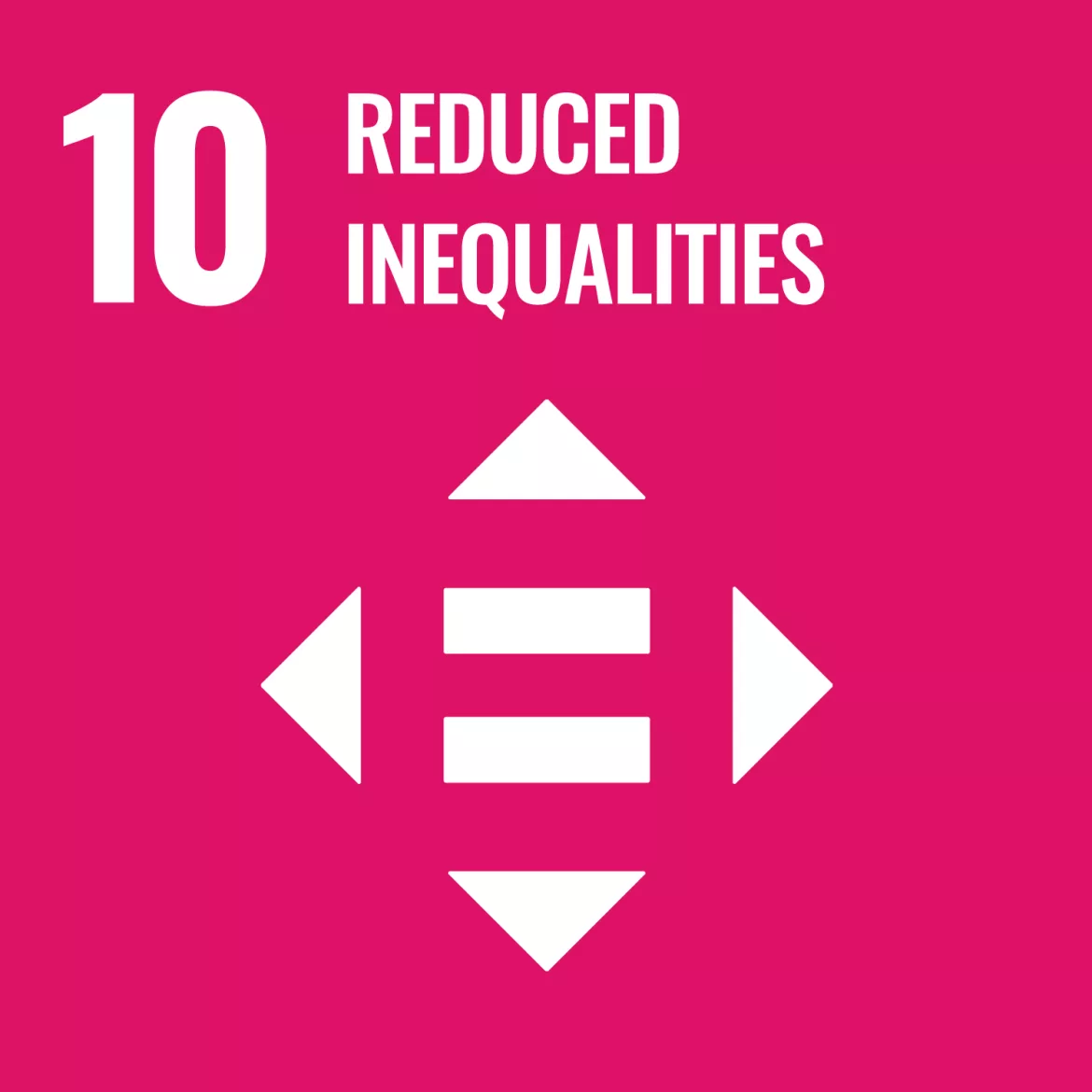
"Reduce inequality within and among countries"
UNBC Office of Equity, Diversity and Inclusion
The University of Northern British Columbia is fully committed to ensuring that all who engage with our university experience a welcoming, safe, inclusive campus community. The principles of equity, diversity and inclusion are UNBC's top priority, and over the past year have led to the initiation of a number of activities to support our commitment. Recognizing that the work of the entire community is required to make positive transformational change and that efforts for change must be ongoing.
The Office of Equity and Inclusion was established in 2022 as a call to action from the UNBC community to support equity, diversity, and inclusion (EDI) efforts at UNBC.
https://www.unbc.ca/equity-and-inclusion
Magnifying Black Voices
As part of UNBC’s commitment to the Scarborough Charter on Anti-black Racism and Black Inclusion In Canadian Higher Education as well as a commitment to creating an environment of inclusivity and equity, the University is excited to announce the launch of the Magnifying Black Voices bursary and mentorship pilot program.
This initiative is designed to empower students who identify as Black across the University, this includes students across all UNBC campuses, providing a platform for uplifting Black voices along with support and celebration. This pilot program concludes at the end of 2024, however the goal is to develop a sustainable model for this program moving forward.
https://www.unbc.ca/equity-and-inclusion/magnifying-black-voices
Northern Pride Centre
The Northern Pride Centre is a drop-in centre for LGBTQ students, community members, and allies located in the NUSC building Room 6-344.
https://www.facebook.com/northernpridecentre
Interfaith Spiritual Care Centre
The Interfaith Spiritual Care Centre at UNBC provides a welcoming space for spiritual support and connection, offering a place for prayer, meditation, and other spiritual practices. Open to individuals of all faiths and beliefs, the Centre serves as a student-centred resource integral to the overall student experience.
The Spiritual Care Space is located in room 7-210 of the Agora, right next to the Security desk. Additionally, room 4-154, a dedicated prayer space, is available down the hall from Security and is open daily from 7:00 a.m. to 9:00 p.m. Both spaces are open to all at any time, with 24-hour access for prayer, meditation, or other spiritual activities. If the doors are locked, individuals can request assistance from Security to gain access.
https://www.unbc.ca/spiritual-care
UNBC Access Resource Centre
The Access Resource Centre (ARC) at UNBC is dedicated to ensuring physical, intellectual, and social access for students with disabilities. Its mandate is to reduce barriers—whether physical, attitudinal, or systemic—so that all students can fully participate in the university experience. ARC provides services and reasonable accommodations for students with documented disabilities, including chronic health issues, hearing and visual impairments, learning disabilities, mental health and neurological disabilities, mobility challenges, and temporary impairments due to illness or injury.
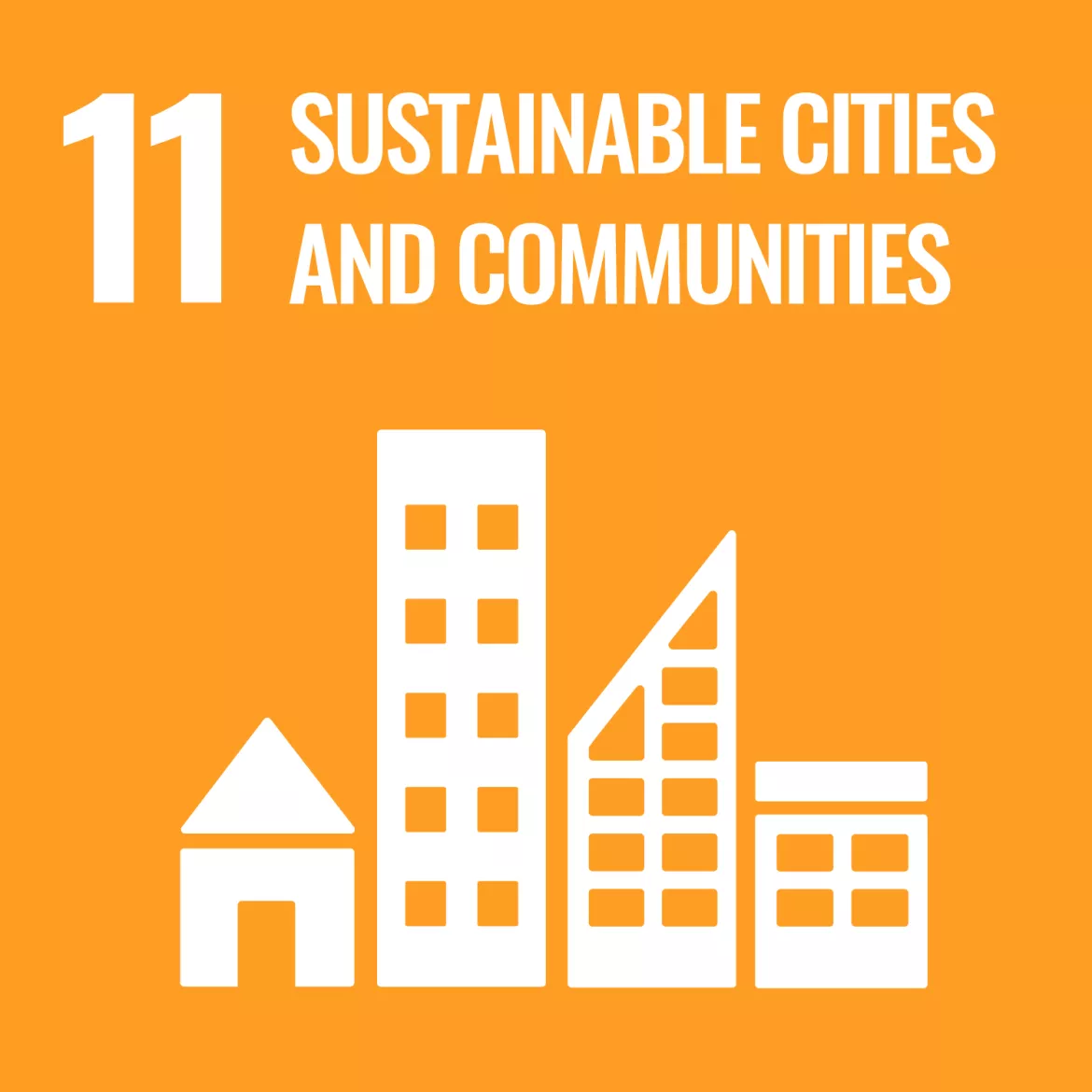
"Make cities inclusive, safe, resilient and sustainable"
As a leader in sustainability, UNBC is committed to assisting cities throughout the region and across the world with developing sustainable practices. UNBC’s practices are intended to minimize its environmental impact through supporting initiatives on campus which will move towards a more sustainable institution. At the same time, UNBC is working with local governments throughout the region to develop policies and practices which will lead to long term sustainable communities. For example, the university has developed a degree in wood design and innovation which allows students to expand their architectural and engineering knowledge to incorporate a more environmentally (and cheaper) building paradigm. The university’s Wood Innovation and Design Centre is a six-story model of wood construction and is being used as a test case for changes in the building codes to allow for taller wood buildings. Such changes in design and construction will result in long term sustainable buildings, able to meet passive house standards.
Cycling Infrastructure
UNBC supports cyclists with various resources and initiatives to make biking to campus easier and more convenient. Despite its hilly location, biking offers numerous benefits, from reducing carbon footprints to improving health. The university provides free bike storage in the library basement, and secure lockers for rent. Cyclists can also take advantage of bike racks on campus, a repair station, showers, and bus bike racks for added convenience. UNBC is surrounded by beautiful trails, making it ideal for cycling throughout the year.
Carpooling
Carpooling at UNBC offers a sustainable and cost-effective way for students, faculty, and staff to reduce their carbon footprint and save on gas. By sharing rides, carpoolers not only lower their environmental impact but also make commuting more affordable, especially with UNBC's carpool permits which are less costly than a general permit. To help connect people in the same area, UNBC provides a carpool sign-up sheet, making it easier for individuals to find others to share rides with. This initiative promotes a sense of community while supporting the university’s commitment to sustainability.
https://www.unbc.ca/sustainability/carpool-program
Electric Vehicle Charging
UNBC offers two convenient locations on campus for charging electric vehicles (EVs):
- Parking Lot B, with 2 chargers
- Hospitality Services (east side of the CJMH Building, Building 3), with 1 charger
These charging stations are easily accessible to support the campus community’s sustainable transportation needs.
https://www.unbc.ca/sustainability/ev
Community Development Institute
The Community Development Institute (CDI) at UNBC was established in 2004 with a broad mandate in the areas of community, regional, and economic development. Since its inception, the CDI has worked with communities across the northern and central regions of British Columbia to develop and implement strategies for economic diversification and community resilience.
https://www.unbc.ca/community-development-institute
UNBC Environmental Planning
The School of Planning and Sustainability, housed in the Faculty of Environment, offers British Columbia’s oldest accredited undergraduate degree in planning. Their course offerings cover all areas of planning and students can major in First Nations Planning, Natural Resources Planning, or Northern Rural and Community Planning. They pride themselves on their innovative approach to planning education, small class sizes, and collegial spirit.
As part of its mission to serve communities across northern British Columbia and beyond, the UNBC School of Planning and Sustainability acknowledges the critical importance of strong and reciprocal relationships with practicing planners. Through the Planner in Residence Program, practicing planners across the region and beyond enable partnerships for experiential class projects, provide professional mentorship and networking opportunities for students, contribute to the governance of the School, and share their unique knowledge, experience, and perspectives as course instructors.
UNBC Student Planners Association
The UNBC Student Planners’ Association’s mission is to enhance the overall learning of planning students by practicing specific professional skills, fostering community involvement, and by creating and enhancing relationships between students and the professional planning community, UNBC, and the public.
https://unbcspa.wordpress.com/
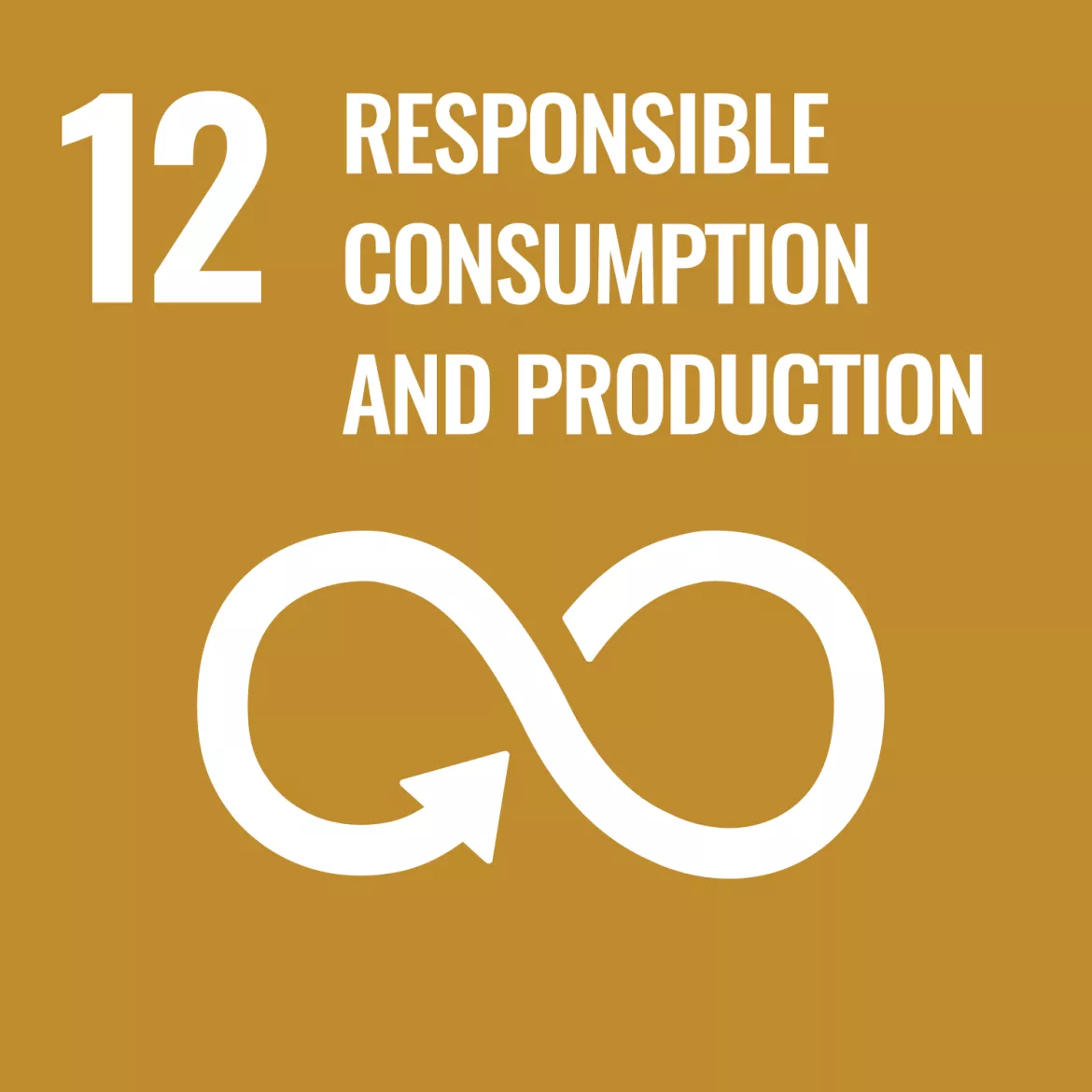
"Ensure sustainable consumption and production patterns"
UNBC Recycling Centers
UNBC houses a centralized area for over 12 categories of recycling.
https://www.unbc.ca/sustainability/recycling-unbc
The Borrow a Mug Program/Bring Your Own!
BAM started in January 2012 as an Action Group through the PG Public Interest Research Group (PGPIRG) as a way to reduce the amount of disposable cups that are used on campus by providing a sustainable, renewable alternative. Now it has expanded thanks to generous donations of mugs from the UNBC Community. Students, Staff, and Faculty can also bring their own mug, thermos, and containers for Food Services to use when providing food and beverages.
When visiting a Food Service location, such as Degrees or Good Earth, individuals can request a BAM mug, and their drink will be served in a reusable mug. After use, mugs can be placed in a designated container at the Food Service location, where they will be cleaned and reused.
https://www.unbc.ca/sustainability/food/borrow-mug-or-bring-your-own
NUGSS Free Store and Reciprocity Shelf
The NUGSS Free Store provides students with free access to clothing, household goods, and school supplies. Originally open only during September, the Free Store began operating year-round starting in Fall 2021. Students are welcome to stop by and browse the available items.
For those looking to donate, the Reciprocity Shelf is located across from the PGPIRG office on the third floor of the NUSC Building (Building 6). Items placed on the Reciprocity Shelf will be added to the Free Store collection.
https://www.nugss.ca/free-store-and-reciprocity-shelf
Fair Trade Designation
UNBC was awarded Fair Trade Campus designation on January 27, 2015, becoming only the ninth university in Canada to receive this recognition. As Canada's Green University, UNBC is committed to sustainability in all aspects, including its purchasing and business practices. President Dan Weeks highlighted that the Fair Trade designation reflects the university’s dedication to ensuring that products consumed on campus are ethically sourced and socially responsible. Fair trade empowers marginalized producers by providing them with the resources and opportunities to improve their living conditions and create better futures for themselves and their communities.
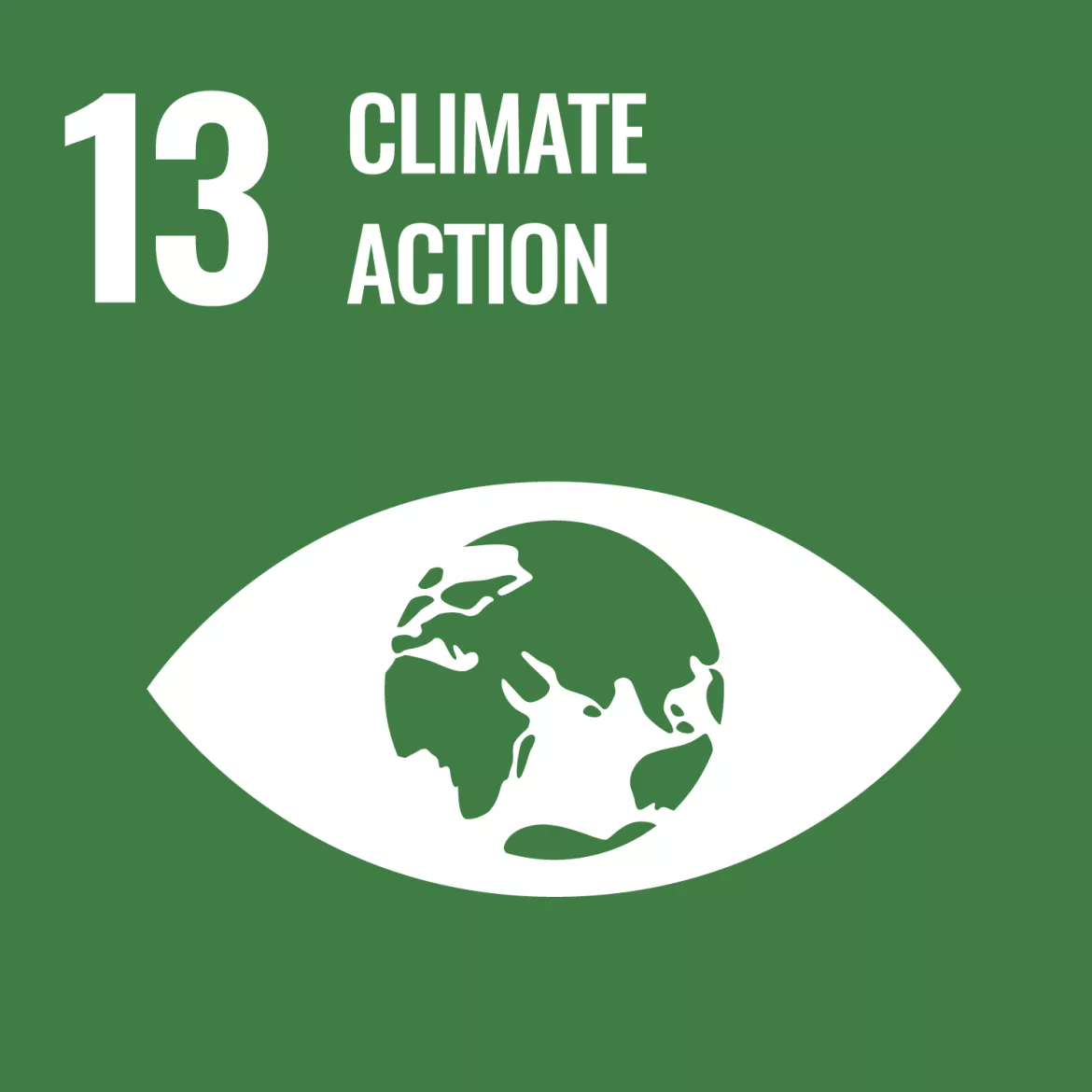
"Take urgent action to combat climate change and its impacts"
As Canada’s Green University, UNBC has had a long and standing commitment to climate action within the institution and in local, regional, and global communities. This action has taken many forms. Dr. Stephen Dery, for example, developed climate projections for the City of Prince George for the next 20 years based on data taken from the past 50 years and computer modeling. The resulting report has been employed by the city in some of its climate change mitigation strategy. Drs. Brian Menounos and Jospeh Shea have been working on understanding glacial retreat and its implication for water sources both in North America and in Asia. Dr. Phil Burton has engaged in research around the impact of changing climate on the composition and speciation of forests in northern B.C. The work of numerous researchers has been published in publicly accessible journals and presented to members of local and provincial governments. At all levels, in both teaching and research, UNBC is engaged in climate action.
UNBC Green Day
Every spring, Green Day is held to celebrate UNBC's achievements in sustainability with keynote speakers, panelists, workshops, activities, and fairs. This event is open to the UNBC Community and to all members of the public and many activities are free to attend!
https://www.unbc.ca/sustainability/green-day
UNBC Green Fund
The Green Fund takes money from a levy on parking fees at UNBC to go towards supporting sustainability at UNBC through two funding streams:
-
Green Project Grant
The Green Grant has two intakes of applications per year: October and February. Green Fund applications are accepted from any member of the UNBC community (Prince George and Regional campuses), including students, staff, faculty and campus based organizations. The Green Grants program is primarily focused on providing one-time, seed funding for research, education and civic engagement projects that promote sustainability at UNBC. Projects supported in the past can be found here: https://www.unbc.ca/sustainability/past-projects
-
Green Travel Grant
The Green Travel Grants program supports knowledge sharing and education that promote campus sustainability at UNBC. We do so by providing financial support for travel and registration fees for conferences/training sessions/etc. that add to the sustainability knowledge and skills base at UNBC, or communicates the UNBC experience to a broader audience. All members of the UNBC community (Faculty, Staff, Students) can apply for a Green Travel Grant.
Climate Change Accountability Reports
As a public sector organization (PSO) in British Columbia, UNBC is part of the province's Carbon Neutral Government program, as mandated by the Climate Change Accountability Act (CCAA). This requires the university to annually account for, report on, and offset its carbon emissions.
UNBC has prepared a report for each calendar year since 2009, which are available for viewing below, outlining their goals and achievements for de-carbonization.
https://www.unbc.ca/sustainability/climate-change-accountability-reports

"Conserve and sustainably use the oceans, seas and marine resources"
Quesnel River Research Centre
The Quesnel River Research Centre acts as a hub of activity for a wide range of scholars who are seeking to improve understanding of topics relating to (and including human interactions with) the natural environment.
The centre was established in 2002 as western Canada's only field station focused on the highly interdisciplinary domain of landscape ecology, funded by a generous endowment from Forest Renewal BC. The aim since then has been to support research and education spanning interactions between the life, terrestrial, freshwater and atmospheric environmental sciences, as well as socio-economic, historical and cultural studies. With this goal in mind, they offer a range of facilities and equipment, data, accommodation and local knowledge.
Scientists currently active at the QRRC are conducting research in areas such as fluvial sedimentology and geomorphology, limnology, and various topics related to terrestrial and freshwater ecology and fisheries science. The center also hosts a diverse group of scientists studying the environmental impacts of the 2014 Mount Polley tailings pond breach.
https://www.unbc.ca/quesnel-river-research-centre
UNBC's Integrated Watershed Research Group
The University of Northern British Columbia (UNBC) proudly houses the Integrated Watershed Research Group (IWRG), comprising a team of distinguished researchers. Their research in this phase will focus on four themes: (1) Establishing a Network of Experimental Watersheds for Integrated Research, (2) Investigating the Impacts of Landscape Disturbances on Sediment and Contaminant Fluxes, (3) Studying Fish Responses to Environmental Changes, and (4) Identifying Co-benefits for Climate, Catchments (Watersheds), and Communities. Phase 3 of IWRG is funded by the Nechako Environmental Enhancement Fund - NEEF and has a two-year period of action between July 2023 and July 2025.
https://www.unbc.ca/integrated-watershed-research-group
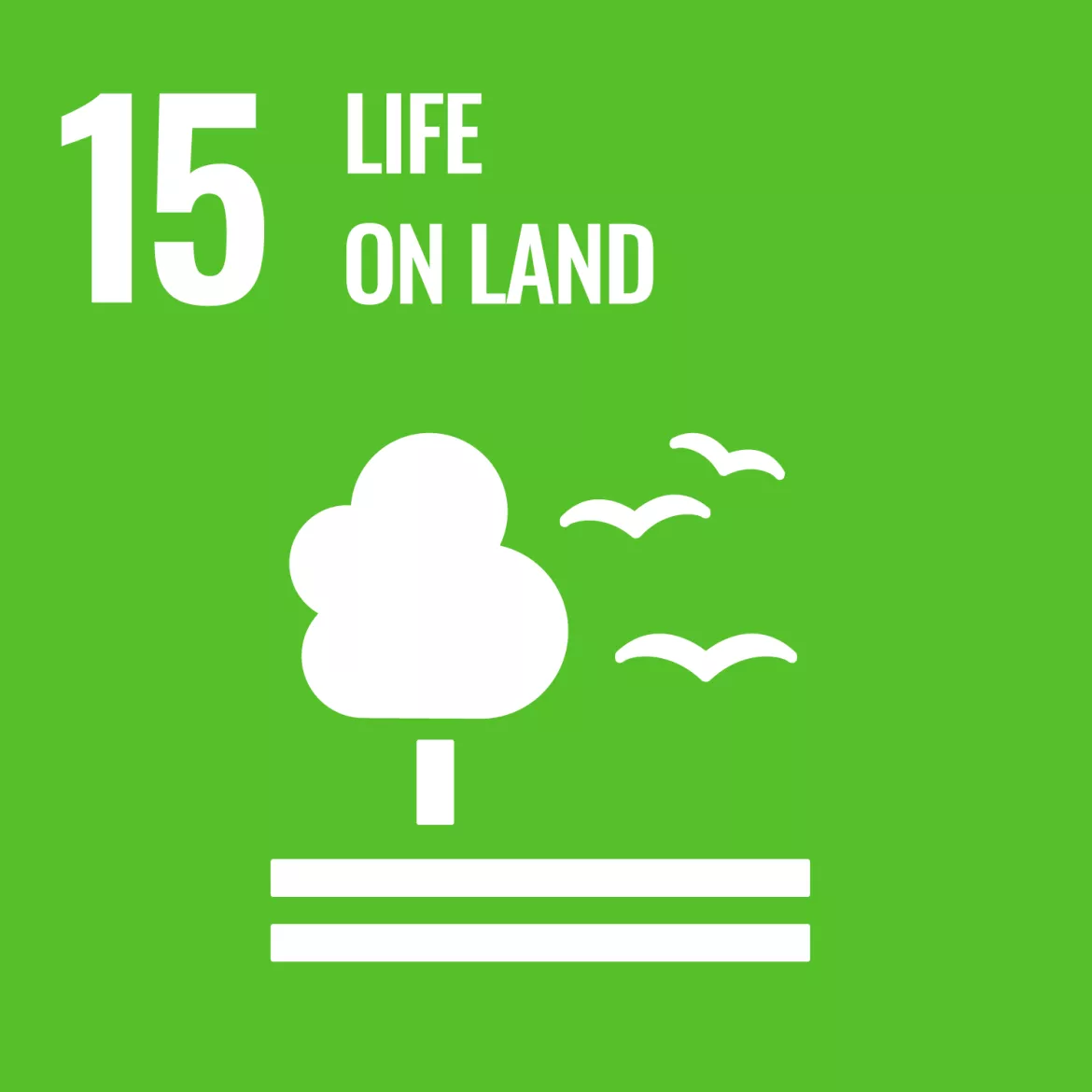
"Sustainably manage forests, combat desertification, halt and reverse land degradation, halt biodiversity loss"
Research Forests and Stations
UNBC has hundreds of acres of protected forest that is used for research. Click below to learn more.
Aleza Lake Research Forest
John Prince Research Forest
UNBC Enhanced Forestry Lab
The Enhanced Forestry Laboratory (EFL) was officially opened in April 2000 and continues to support controlled environment research and teaching at UNBC. Internal and external clients can access the lab’s space, equipment, and services through an online request system. Greenhouse technicians collaborate with faculty, students, and external users to support various research and teaching initiatives. A range of activities are managed by the greenhouse technicians. The IK Barber Enhanced Forestry Lab is located in Building 12 at the north end of campus, across from the power plant.
UNBC Herbarium
The UNBC Herbarium houses student collections donated for teaching purposes, as well as a master herbarium that includes many samples donated by the Royal BC Museum, some dating back to the 1940s and 1950s. While some of the mounts from the master herbarium are used for teaching, they have also been utilized for research. The herbarium also contains a cone collection, a fruit type collection, and a fungi/lichen collection. Additionally, it stores plant presses that are used by various classes. The David Douglas Botanical Garden Society Library is also located within the herbarium.
https://www.unbc.ca/office-research-and-innovation/unbc-herbarium
The Natural Resources and Environmental Studies Institute
The Natural Resources and Environmental Studies Institute (NRESi) builds connections among university researchers and communities or external experts to advance understanding of natural resources and the environment. NRESi facilitates collaborative projects that address complex issues involving ecological processes, social values, and earth science systems.
Within NRESi’s membership, there are more than 80 researchers with diverse expertise, who engage in a wide range of project themes. NRESi supports and develops research opportunities focused on collecting baseline information, as well as applying that knowledge to practical problems.
https://www.unbc.ca/nres-institute
The David Douglas Botanical Garden Expansion Project
In partnership with UNBC, the David Douglas Botanical Garden Society is developing an 11-plus hectare garden at the campus entrance. The Expansion Project involves the growth of the 1.6-hectare garden located at the heart of UNBC’s campus, transforming it into a multi-use hub for research, recreation, respite, and community development. The expansion will include a visitor center featuring a classroom, gift shop, botanical library, and reception area, as well as various themed ornamental display gardens. It will also feature a walkway with overhead arbours and trellises, a wetland area with viewing platforms, and a hands-on research garden for UNBC faculty and students.

"Promote just, peaceful and inclusive societies"
1000 Ravens for Reconciliation
The First Nations Centre invited UNBC students, staff, and faculty to create an origami raven as part of a goal to make 1,000 Ravens, symbolizing a university-wide wish for reconciliation. The project was inspired by an ancient Japanese legend that promises a wish to anyone who folds 1,000 origami cranes. Raven, an important figure in First Nations cultures, is known for teaching lessons through his trickster ways and for bringing light to a world of darkness. Once the 1,000 Ravens were completed, they were displayed prominently on campus. The First Nations Centre expressed gratitude to Beverly Best for initiating the 1,000 Ravens for Reconciliation project at UNBC.
https://www.unbc.ca/indigenous-resource-dati/1000-ravens-reconciliation
Allyship and Interrupting Privilege: Walking Together Toward Truth and Reconciliation Workshop
UNBC’s Strategic Plan included one of its four themes focused on the meaningful enactment of Truth & Reconciliation. The Inspire & Ignite Investment Fund generously sponsored a workshop aimed at beginning the internal work of examining privilege and positionality. Participants engaged in unsettling their privilege and learning about allyship to help move forward individually and collectively in the work of decolonizing and Indigenizing the academy, as well as their own mindsets. The workshop featured a facilitated activity called the Privilege Beads Exercise, an Allyship presentation, grounding and mindfulness practices, quiet reflection time, and group discussions.
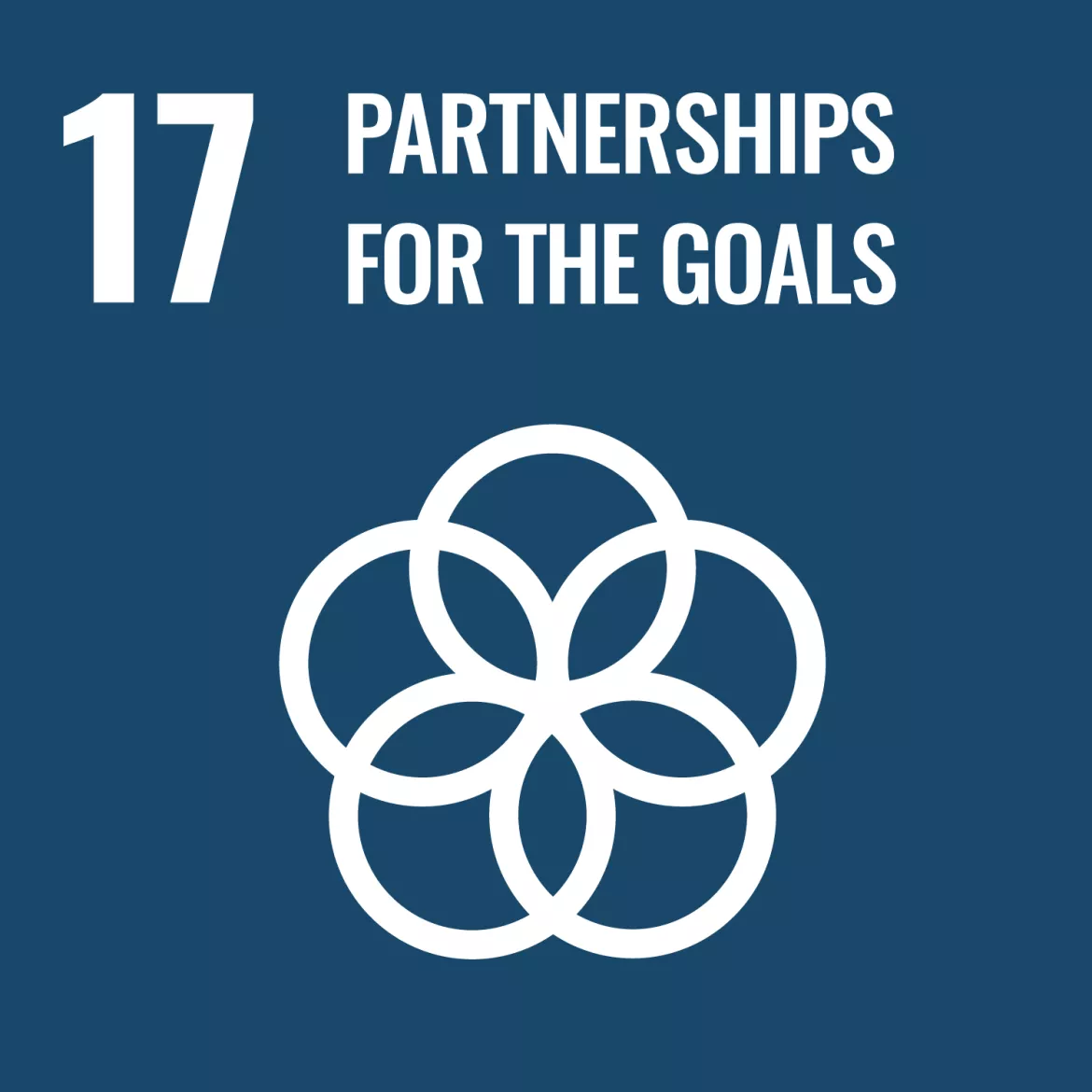
"Revitalize the global partnership for sustainable development"
UNBC engages with partners from government, civil society, other institutions, industry, and our communities in general to work towards a more sustainable future. We are working with local governments throughout our region to provide updated solutions to issues such as clean water, sanitation, land use, water management, and climate action. We work with NGOs on issues such as gender equity in the construction industry, addressing housing shortfalls in communities, and developing innovative health solutions. We are partnered with other universities through RUCBC, IURC, and NCCIH. And with industry through MITACS and our office of Research and Innovation. All of these interactions further our goal of sustainable development and green principles.
Sustainability Advisory Council
The Sustainability Council serves as an advisory and policy development body for initiatives at UNBC aimed at achieving the goal of being recognized as Canada's Green University™. The council, along with its sub-committees, is composed of UNBC staff, faculty, students, and alumni.
https://www.unbc.ca/sustainability/campus-and-community-groups
Travelling Knowledges Program
The "Travelling Knowledges: Local Cultures and Environments Across Geographies" program at UNBC allows students from any discipline to explore diverse global issues, including sustainability, human rights, and socio-environmental challenges. Students can study abroad, immerse themselves in different cultures, and gain academic credit through field schools, exchanges, or individual travel. The program focuses on helping students bring their new knowledge back to Canada, with opportunities for travel to countries like New Zealand, Mexico, Poland, India, and South Africa, or other locations offering meaningful educational experiences. Funded by the Government of Canada and UNBC through the Global Skills Opportunity (GSO), the program equips students with valuable intercultural, leadership, and work skills.
https://www.unbc.ca/global-and-international-studies/travelling-knowledges